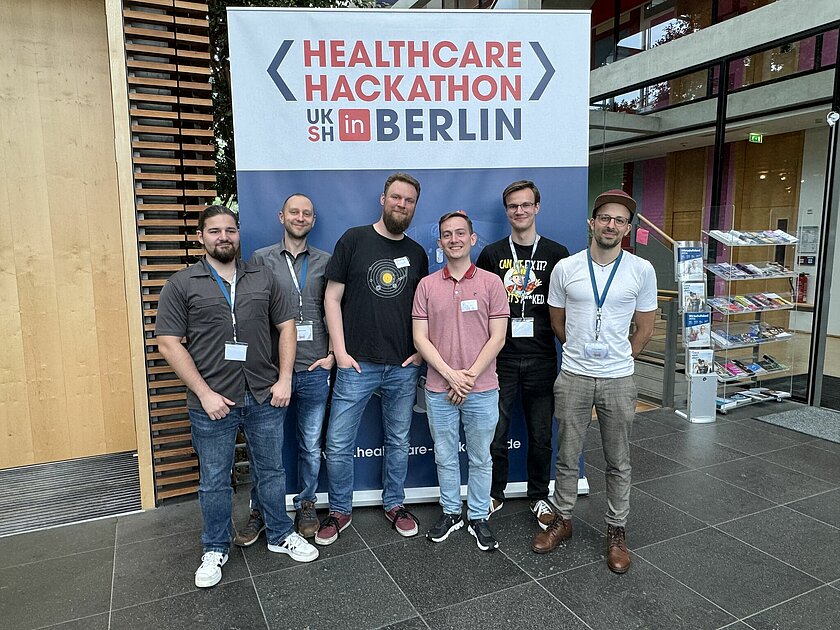Once the right data is available in the right quality, an AI can be easily trained for more complex tasks in medicine - for example in the field of histopathology, the diagnosis of cell and tissue material. The problem here, as Prof. Dr. Johannes Schobel and Daniel Hieber explain, is rather finding the right data set. How can data volumes of images with ten billion pixels be intelligently selected, automatically checked for quality and accuracy - and then prepared for use in machine learning?
Creative, collaborative, innovative: hacking together for the medicine of tomorrow
Led by HNU researchers, a team of scientists traveled to Berlin with this question in mind to work on solutions at the Healthcare Hackathon. In the form of live hacking with directly usable AI models and real data, pitches and intensive discussions, the event offered an ideal platform to collaboratively get to the bottom of questions relating to AI and large language models in medicine. Together with Prof. Dr. Johannes Schobel, Moritz Dinser and Daniel Hieber, Dr. Johannes Allgaier and Carsten Vogel (both University of Würzburg) and Dr. Dominik Müller (University of Augsburg) worked on the pre-processing of histopathological image data.
Digital innovations in healthcare: Focus of the DigiHealth Institute at HNU
The DigiHealth Institute conducts research in a variety of contexts on the digitalization of healthcare in general and automated data analysis in particular. For example, Daniel Hieber is examining histopathological images of glioblastomas (malignant brain tumors) as part of his doctorate in the NAP (Neuronal Network Assisted Pathology) project, and the recently published anthology “Digitale Innovationen in der Pflege” (Digital Innovations in Care) by Institute Director Prof. Dr. Walter Swoboda contains an article on mobile data acquisition in care (opens in a new window)written by Prof. Dr. Johannes Schobel and Daniel Hieber, among others.
Contact
Prof. Dr. Johannes Schobel







